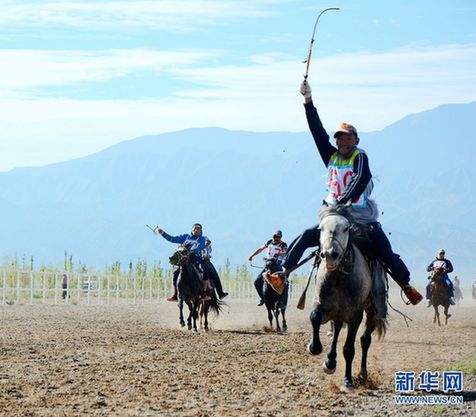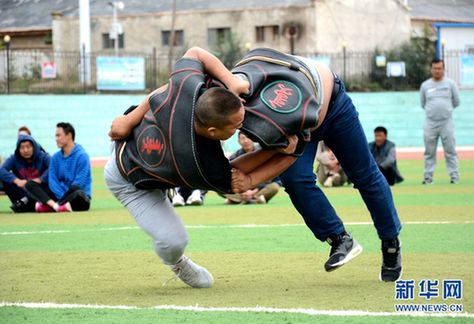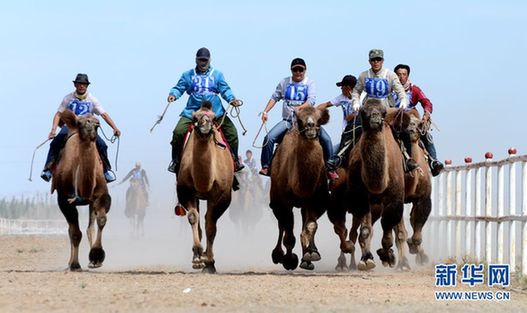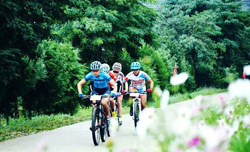News
The warrior spirit enlivens the plains in Gansu
Updated: 2016-09-06By Owen Fishwick and Li Xiaoxu ( chinadaily.com.cn )
 |
| A rider takes the lead in a horse race. [Photo/Xinhua] |
It is said that since the time of Genghis Khan, festivals of strength, bravery and the warrior spirit have taken place on the wide plains of Mongolia. Wrestling, archery and horseracing would spring in to action, stirring up clouds of red dust and vibrating through the ground like claps of thunder.
In more recent times, people from a range of ethnicities, including Mongol, Kazakh and Han attend the Nadam Festival held in the Mongolian autonomous county of Subei in Gansu. The event begins each year between July and August in the solar calendar.
Thousands arrive for the annual gathering, some on horseback, some in cars, some on foot, draped in ornate traditional ethnic dress embodying the spirit of their nomadic ancestors.
Many camp for the six-week event, which this year took place from Aug 2 to Sept 15, their tents and temporary homes coating the dry sun scorched plateau.
 |
| Wrestlers get to grips with each other. [Photo/Xinhua] |
During the day, excited spectators cheer for their local hero as gladiatorial battles explode into action on the plains. Mongolian wrestling is a major draw card at the festival with those taking part and winning becoming idols for the younger generation. Much in the same way, Genghis Khan would promote soldiers that performed well in similar events held some 800 years ago.
On the face of it the wrestling seems simple, touch the ground with anything other than your feet and you lose. However, the combat is much more complicated than that, with more than 300 different moves, holds and positions.
Dressed in outfits developed over the ages designed to be simple and have good mobility, the two wrestlers perform a dance before they enter the ring, symbolizing the movements of lions, falcons and tigers.
In the next field over, a starter’s pistol claps, sending a troop of horses whinnying into action. Dust fills the air, and over the rumble of hooves, shouts and calls can be heard as the riders push their charges towards the finish line.
 |
| Camels charge in Subei Mongolian autonomous county in Gansu province. [Photo/Xinhua] |
Some 130 riders and steeds took part in this year’s racing, representing places such as Subei county, Akesai Kazak autonomous county and Qinghai province.
As darkness falls across the prairie, camp fires are lit and people gather under the stars to tell stories and sing songs passed down through generations.
This year’s festival was held to warm up for the upcoming Silk Road Dunhuang International Cultural Expo in September and publicize Mongolian culture and tourism, according to the organizers, the government of Subei Mongolian autonomous county.
Subei Mongolian autonomous county in Jiuquan city is located in the west of the Hexi Corridor at the intersection of Gansu, Xinjiang, Qinghai and Inner Mongolia. The Mongolian people account for more than 40 percent of the locals.


